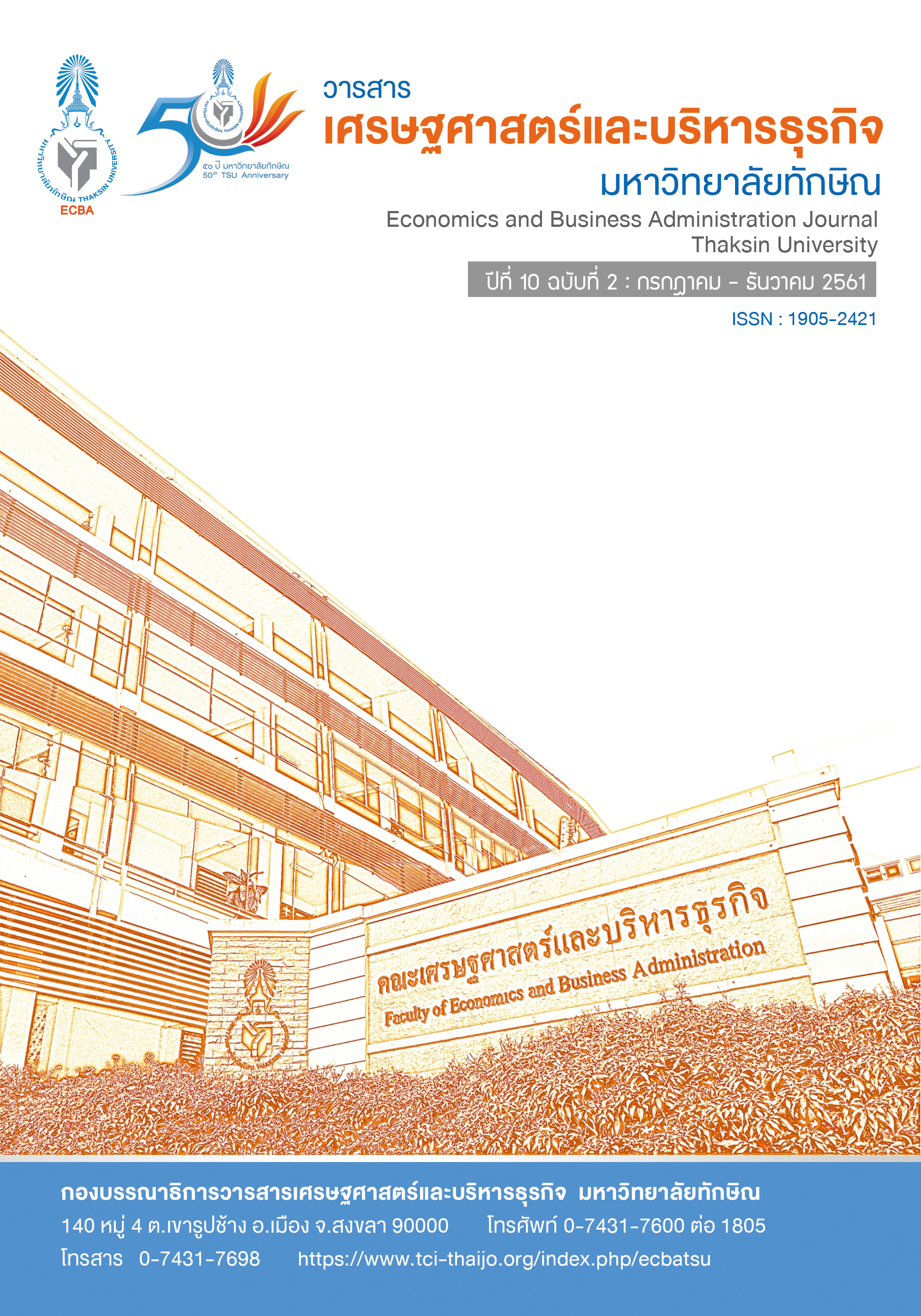Perception toward President Alpha Conde Political Leadership System from 2010-2018: A Study of Guinean Living in Thailand
Keywords:
Perception, Political Leadership Style, Guinean, PresidentAbstract
The purpose of this study was to examine the kind of political leadership style perceived by Guinean living in Thailand toward President Alpha Conde in Guinea-Conakry. Firstly, this study investigates Guinean living in Thailand perception toward Alpha Conde political leadership style 2010-2018. The finding reiterated from this studies, focused on three main points. The national budget for development (NBD), had started decreasing, and funds allocated to different ministers for development had decrease. And the promotion toward his third mandate in office has increase, and indirect campaign in the country has seen the light. The President had never succeeded in fighting against corruption in the country. Secondly It evaluates the effectiveness of president Alpha Conde political leadership style 2010-20018. the effectiveness of the President Alpha Conde political leadership style from 2010-2018 remains question mark by Guinean living in Thailand, according to one of our interviewee’s mention that, there is no tangible items brought by this regime in the country since their accession to power 2010 until now, and he went further by mentioning that, the President has not fulfilled his promises; due to his weakness on issues like assuming his responsibility, corruption, social cohesion and education. Therefore, the interviewee’s expresses their deep concerned about these various points which could not establish any speculation. Thirdly, it also predicts the political leadership style needed in Guinea for the future president 2020. the future President must be able hold and display a clear political leadership style by respecting strongly the constitution of the country. Fight against corruption, reconciliation of Guinean must be his priority and educational reform should be his target. Assuming his responsibility in a share hand of all Guinean should be his/her political way. This study was purely qualitative research conducted in the southern region of Thailand with population of 12 participants 10 Guinean and 2 Liberian. The data collection process mainly focuses on in-depth interviews with a clear schedule timetable. The tools used in this research were telephone and IPad to facilitate the recording and sound processing for coding during data analysis. Nevertheless, the crucial point of this study was based on the data collection and processes for analysis, the proper coding style that really suited this study was transcription of data which allowed the background of the study to be more obvious.
References
Alistair, B. (2017). Speech on Yemen, Political Speech Archived. Retrieved from https://www.ukpol.co.uk/alistair-burt-2017-speech-on-yemen/.
Bass, M. B. and Stogdill, R. M. (1990). Handbook of Leadership Theory, Research and Managerial Applications. (3rd ed.). New York: Free Press.
Carp, J., Halenar, M. J., Quandt, L. C., Sklar, A. and Compton, R. J. (2009). Perceived Similarity and Neural Mirroring : Evidence from Vicarious Error Processing. Social Neuroscience. 4(1), 85-96.
Creswell, J. W. and Clark, V. L. (2004). Teacher Action Research : Building Knowledge Democracies. Thousand Oaks : SAGE Publishing's.
Feather, N. T. and Rauter, K. A. (2010). Organizational Citizenship Behavior in Relation to Job Status, Job Insecurity, Organizational Commitment and Identification, Job Satisfaction and Work Values. Journal of Occupational and Organizational Psychology. 71(1), 81-94.
Hassan, O. S. (2009). The Effects of the Perceived Leadership Style on Organizational Commitment an Empirical Study on UNRWA Staff. Master of Business Administration. Palestine : Islamic University, Gaza. Retrieved from file:///C:/Users/User /Downloads/Documents/86879.pdf.
Jones, E. E. (1964). Ingratiation : A Social Psychological Analysis. (Century psychology Series), Appleton-Century- Crofts, first Edition.
Love, T. C. (2005). Using Both Head and Heart for Effective Leadership. Journal of Family and Consumer Sciences. 97(2), 17-19.
Madina, D. (2016). Guinea’s 2020 Presidential Elections, A Crisis in the Making. Clingendael Netherlands Institute of International Relations. Retrieved from https://www.clingendael.org/publication/guineas-2020-presidential-elections-crisis-making.
Marc, A., Verjee, N. and Magaka, S. (2015). The Challenge of Stability and Security in West Africa. African Development Forum, Washington, DC. Retrieved from https;//openknowledge.worldban.org/handle/1086/22033license: CCBY3.IGo.”
Matthew, K, L., (2016). A Study of the Perception of Impact of Mindfulness on Leadership Effectiveness. ProQuest LLC. Dissertation of Doctor of Education. Philadelphia, PA : University of Pennsylvania.
Mohamed, S. and Ali, S. (2017). Hopes high in troubled Guinea as Conde sworn in. Discover Thomson, Reuters. Top News December.
Morrell, K. and Hartley, J. (2006). A Model of Political Leadership. Journal of Human Relations. 59(4), 483-504.
Moss, J. (2005). Race Effects on the Employee Assessing Political Leadership: Review of Christie and Geis’ (1970) March IV Measure of Machiavellianism. Journal of Leadership and Organizational Studies. 11(2), 26-33.
Selim, S, E. And Moutar, B., (2015). Protester Injured During Clashes with Police an Anti-Government Protest in Conakry. AFP/File.
Sirje, V. (2009). A Leadership Models, Institute of Information Studies. Tallinn University. Retrieved from https://www.tlu.ee/~sirvir/Leadership/Leadership%20Models/index.html.
Steven, H. A. and Hughes, B. (1998). Ingratiation as a Political Tactic : Effects within the Organization, Management Decision. pp. 36-95 Retrieved from https://www.researchgate.net/publication/247617112_Ingratiation_as_a_political_tactic_Effects_within_the_organization.
Suda, L. (2013). In Praise of Followers. Paper presented at PMIR Global Congress North America, New Orleans, LA., and Newton Square, PA : Project Management Institute. Retrieved from https://www.pmi.org/learning/library/importance-of-effective-followers-5887.
Toure, C, A, M., Sity, D. and Russli, K., (2017). Ethnic Conflict, Politics of Developing Countries, Good Governance and Authoritarian Leadership in Republic of Guinea Conakry. International Journal of Humanities and Social Science Invention. 6(8), 23-28.
Yukl, G., (1999). An Evaluation of Conceptual Weaknesses in Transformational and Charismatic Leadership Theories. Leadership Quarterly. 10(2), 285-305.




